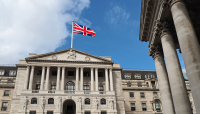
While much of the news around the Bank of England has concerned its latest interest rate increase — a 50 basis point hike to 5% — internally, many of the central bank’s staff were quietly celebrating a significant system upgrade.
Over the weekend of June 17 and 18, staff at the UK’s central bank successfully implemented an upgrade to its payments system, known as CHAPS, to the ISO 20022 standard.
The upgrade means more data can be sent with each transaction and “in a more structured format”, according to the Bank of England’s statement.
ISO 20022 brings the UK’s payments system in line with a new international standard that is set to be implemented by many other jurisdictions by the end of 2025 — including the Federal Reserve.
“The introduction of the ISO 20022 financial messaging standard marks a major milestone in our mission to enhance… critical infrastructure at the heart of the financial system,” said Victoria Cleland, the Bank of England’s executive director of payments.
Cleland said that the upgrade would “enable more systems to speak the same language and ultimately enhance cross border payments”.
“ISO 20022 also provides great benefits for individual firms: I would encourage them all to embrace these benefits,” she added.
The news comes almost exactly a year after the Federal Reserve stated its intention to implement ISO 20022 into its Fedwire Funds Service with effect from March 10, 2025.
At the time, the Fed said that adopting ISO 20022 “will allow for enhanced efficiency of both domestic and cross-border payments due to greater interoperability among global payment systems, and a richer set of payment data that may help banks and other entities comply with sanctions and anti-money laundering requirements”.
FedNow, the instant payments system set to be launched by the US central bank next month, also uses the ISO 20022 standard. The Fed has said ISO 20022 is “vital to instant payments” and will “play an important role in the overall modernization of payment processes”.
Smooth implementation will be vital to the success of ISO 20022 and FedNow. Looking across the Atlantic may show how it can be done.





